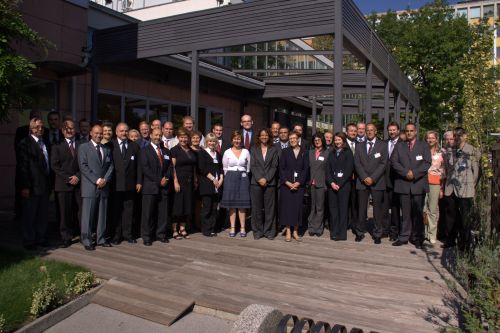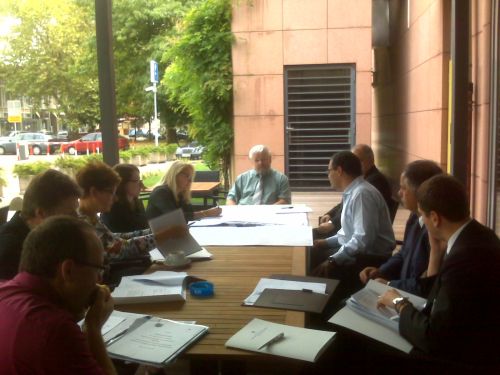From 8 to 10 September 2009 a seminar on the Bologna process in police education took place in Ljubljana that was organized by the Police Academy under the auspices of the European Police College (CEPOL).
The fact that the seminar was attended by 40 high police officers from 19 Member States of the European Union proves that the European police forces, that used to or still have a closed educational system, started opening their doors, that there are changes underway in this field and that the Bologna process cannot be avoided.

Goran Klemenčič, the State Secretary at the Ministry of the Interior, stressed in his opening speech that police forces must adapt to challenges and changes in the society and that they are first in the line responsible for ensuring legal order which requires from police officers a different kind of responsibility and action. The educational process does not only mean gathering knowledge; it is also about forming socially sensitive and well-informed individuals who are able to react to social phenomena and challenges as well as think in a broader and community-oriented manner. Therefore the education should be aimed at forming ethical individuals capable of reflexion.
Janja Komljenovič from the Ministry of Higher Education, Science and Technology presented an overview of the decade of the Bologna process, stressed its goals, strengths and weaknesses as well as tasks that still need to be carried out to make the Bologna idea better rooted in Europe and reach its goals.
The seminar presented nine more or less successful ways of implementing the Bologna process in police education. For us it was particularly interesting to listen to the presentations of three German participants who presented programmes of the Bologna level 1 for future police officers in the Federal State Rhineland-Palatinate, in the German Federal Police and for future criminal police officers within the framework of the Federal Criminal Police Office (BKA).

At the seminar participants openly discussed the advantages and disadvantages, exchanged their views and experience, as well as tackled troubles and formalities that they have to face during their work due to different legislations in individual countries.
However, everybody agreed that European police forces have the same values and goals in the field of police education, that police officers from different states must reflect the structure and values of their own countries and that the European Union needs adequately educated police officers.

